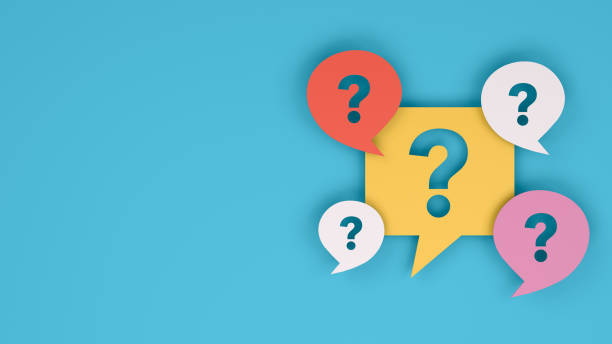This is the Importance of comprehension questions; as humans, we constantly seek to understand and make meaning of the world around us. This comprehension process is essential to learning, problem-solving, and effective communication.
Comprehension questions are an integral part of this process, as they help us to solidify our understanding of a concept and identify areas where we may need further clarification.
In this post today, I and I will be exploring the importance of comprehension questions in learning and communication. Now, Let’s get started
>> See This Suggestion: Generating Questions For Reading Comprehension [ Best Guide]
Table of Contents
What are Comprehension Questions?

Comprehension questions require the reader or listener to understand and interpret the information received. These questions can take many forms, including multiple-choice, short-answer, and essay questions.
Comprehension questions are commonly used in educational settings to assess students’ understanding of a topic. Still, they are also used in everyday communication to ensure the message is understood.
Check out: 7 Best Comprehension monitoring activities Ideas
Importance of Comprehension Questions
- Assessing understanding: Comprehension questions are an effective way to assess understanding. In an educational setting, comprehension questions can be used to evaluate how well students have grasped a concept or idea. In everyday communication, comprehension questions can help to clarify a message and ensure that the listener has understood the information being conveyed.
- Identifying knowledge gaps: Comprehension questions can also help to identify knowledge gaps. When a student or listener struggles to answer a comprehension question, it can indicate that they need further instruction or explanation on a particular topic. This feedback is essential for effective learning and communication.
- Encouraging critical thinking: Comprehension questions can also promote critical thinking. When presented with a comprehension question, the reader or listener must engage with the material and actively process the information to arrive at an answer. This critical thinking process helps reinforce understanding and solidify the learning process.
- Improving memory retention: Comprehension questions can also improve memory retention. When asked to recall information, it helps strengthen the connections in our brains responsible for storing it. This makes it easier to recall the information in the future.
- Enhancing communication: Comprehension questions can ensure the message is understood. When a speaker asks a comprehension question, it allows the listener to ask for clarification or further explanation. This can help prevent misunderstandings and ensure the message is received as intended.
See also: Monitoring comprehension Reading Strategy To Improve Your Reading
What are Different Comprehension Questions?
Several comprehension questions can be used to assess understanding and encourage critical thinking. Some of the most common types include:
- Literal comprehension questions require the reader or listener to recall specific details or facts from the text or conversation. For example, “What was the main character’s name?” or “What is the capital of France?”
- Inferential comprehension questions make the reader or listener draw inferences or conclusions based on the information presented. For example, “Why do you think the character acted that way?” or “What do you think the author was trying to convey with this passage?”
- Evaluative comprehension questions request that the reader or listener make judgments or evaluations based on the information presented. For example, “Do you agree or disagree with the author’s argument?” or “What would you have done differently in this situation?”
- Applied comprehension questions: Another type of question that requires the reader to apply the information presented to a real-world situation. For example, “How would you use this concept in your job?” or “What would you do if you were in this situation?”
- Synthesis comprehension: questions require the reader or listener to combine information from multiple sources or perspectives to form a new understanding. For example, “How do these two articles relate to each other?” or “What conclusions can you draw from these different perspectives?”
By using various comprehension questions, educators and communicators can assess understanding from different angles and encourage critical thinking and deep learning.
Check also: Action Research in Reading Comprehension To Improve Reading
Examples of Comprehension Questions
- What is the main idea of this passage?
- How does this concept relate to other concepts we have learned?
- Can you explain this idea in your own words?
- What evidence supports this claim?
- How would you apply this concept in a real-world situation?
- What are the potential implications of this idea?
- Can you provide an example of this concept in action?
- How does this idea challenge or confirm your existing beliefs?
Tips For Asking Effective Comprehension Questions
- Be specific: When asking comprehension questions, it’s important to be specific. Vague or general questions can lead to confusion or misunderstandings. Instead, ask questions that are targeted and specific to the topic at hand.
- Be clear: Comprehension questions should be clear and concise. Avoid using complex language or jargon that could confuse the listener or reader. The goal is to ensure that the message is understood, not to impress with your vocabulary.
- Be open-ended: Open-ended questions encourage critical thinking and allow the reader or listener to provide a more nuanced response. Avoid asking questions that can be answered with a simple yes or no.
- Be relevant: Comprehension questions should be relevant to the topic being discussed. Avoid asking questions that are tangential or unrelated to the main idea.
- Be mindful of tone: The tone in which comprehension questions are asked can impact how the listener or reader receives them. It’s important to ask comprehension questions in a neutral and non-judgmental tone, as this can encourage the listener or reader to engage with the material and provide an honest response.
- Provide feedback: After asking a comprehension question, it’s essential to provide feedback on the answer provided. This feedback can help to reinforce understanding and correct any misunderstandings.
Conclusion On the Importance of comprehension questions
Now, you should know the Importance of comprehension questions; comprehension questions are essential for learning and effective communication. They provide a way to assess understanding, identify knowledge gaps, encourage critical thinking, improve memory retention, and enhance communication.
When asking comprehension questions, it’s important to be specific, clear, open-ended, relevant, and mindful of tone. By using comprehension questions effectively, we can deepen our understanding of the world and communicate more effectively with others.
FAQ
What is the importance of comprehension?
Reading is enhanced by comprehension. Reading comprehension happens when the words on a page are more than letters and sounds. Reading is joyful, entertaining, and educational when it is understood. It is necessary to excel in school, the workplace, and life.
What are the three crucial components of comprehension?
The three main components of reading comprehension are decoding vocabulary and knowledge.
What components of comprehension are important?
Here are six prerequisites for reading comprehension, along with suggestions for how to help kids develop them.
Decoding. Fluency. Vocabulary. Sentence building and cohesiveness. Reasoning and background knowledge. Working memory and attention. Decoding is a crucial phase in the reading process.






